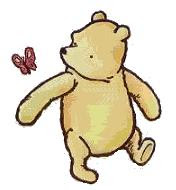
Chapter 13. The longest chapter in the history of man kind, extending from page 234 all the way until page 266. Only 32 pages you say? Well, it may not be physically the longest chapter ever, but content wise, it is. There are so many things you could talk about! How could you choose? Everything, you might say, talk about everything. Well, that might be a little difficult, as many of the letters just seeped into my eye sockets and went no further. However, because I myself am suffering from a bad cold, one thing did strike my attention, so, guess what...I will talk about that. I will try to do my best, too, because this is the last blog about
The Selfish Gene. Thank Goodness!
So, the paragraph starts with "Consider" (p.246). Yes, we could consider many things. Why is the world round? The sky blue? Why cows say 'moo'? Etcetera, etcetera. Yet, like most things, the sentence goes on, slowly developing itself until the paragraph ends with "viruses" (p.246). So, now, we are considering viruses. Those nasty little things that give us symptoms that are not fun at all. Usually involving tissues, runny noses, head aches, and sneezing. "Annoying byproducts" (p.246), right? However, Dawkins states that they are "engineered [the symptoms] by the virus to help it to travel from one host to another" (p.246). Well this is just great. I knew all about germs and how you should wash your hands, but now all of a sudden viruses are purposefully engineering new ways to get around, and make us miserable! Great! Just peachy.
Then I realized, Dawkins does this alot. He personifies things, things that are incredibly weird to personify. Viruses, and even specific genes. His famous "selfish" gene as well. He makes it sound like it has a mind of its own, when, in fact, it has no "mind" at all. What is up with this?
"...nature teems with animals and plants..." (p.253)
"Natural selection favours those genes that manipulate the world to ensure their own propagation" (p.253).
What is up with this? Nature is not an actual organism, it can't be teeming up with anything! Natural selection cannot favour certain genes. And genes, how are they supposed to manipulate the world?
I think Dawkins is trying to explain something that he himself thinks has become intellegent, seeking survival, changing throughout its life time, and then passing on those changes to its offspring. But that cannot be right at all. You cannot change your genes. Even if you acquired characteristics during your lifetime, like muscles for example, you wouldn't pass that on to your offspring, they would have to build up their own muscles. Like wise, genes cannot grow "intellegent" and figure out how to survive, and then pass those genes to survive on to their replicated offspring, it just doesn't work. Sure, maybe they could "tell" them about it, but honestly, genes are doing any "telling" at all!
I finish this book with a jumbled and confused head. What is he trying to prove any way?
The last sentence answers this question.
"The only kind of entity that has to exist in order for life to arise, anywhere in the universe, is the immortal replicator" (p.266).
...alrighty, now what is that supposed to mean?
